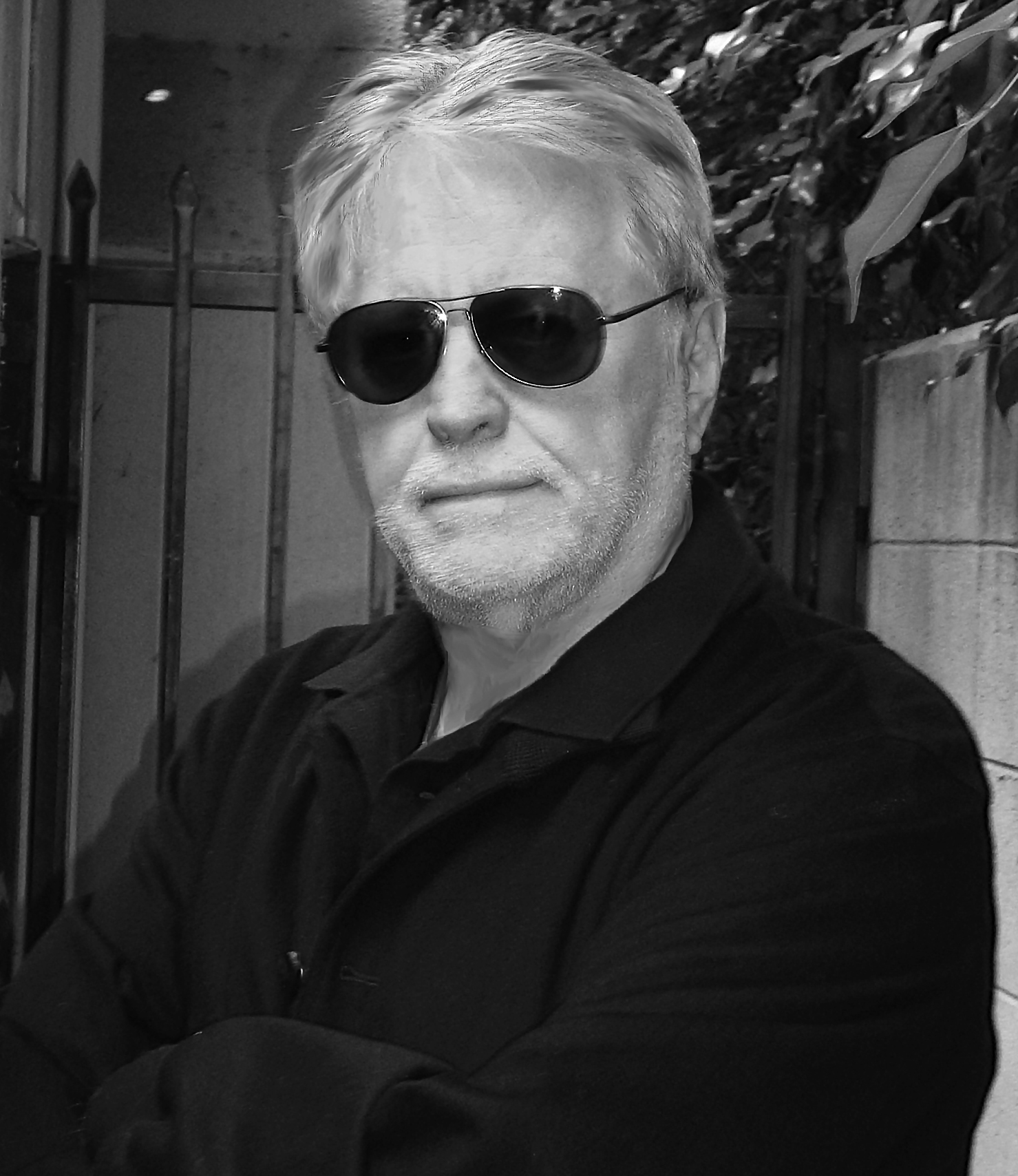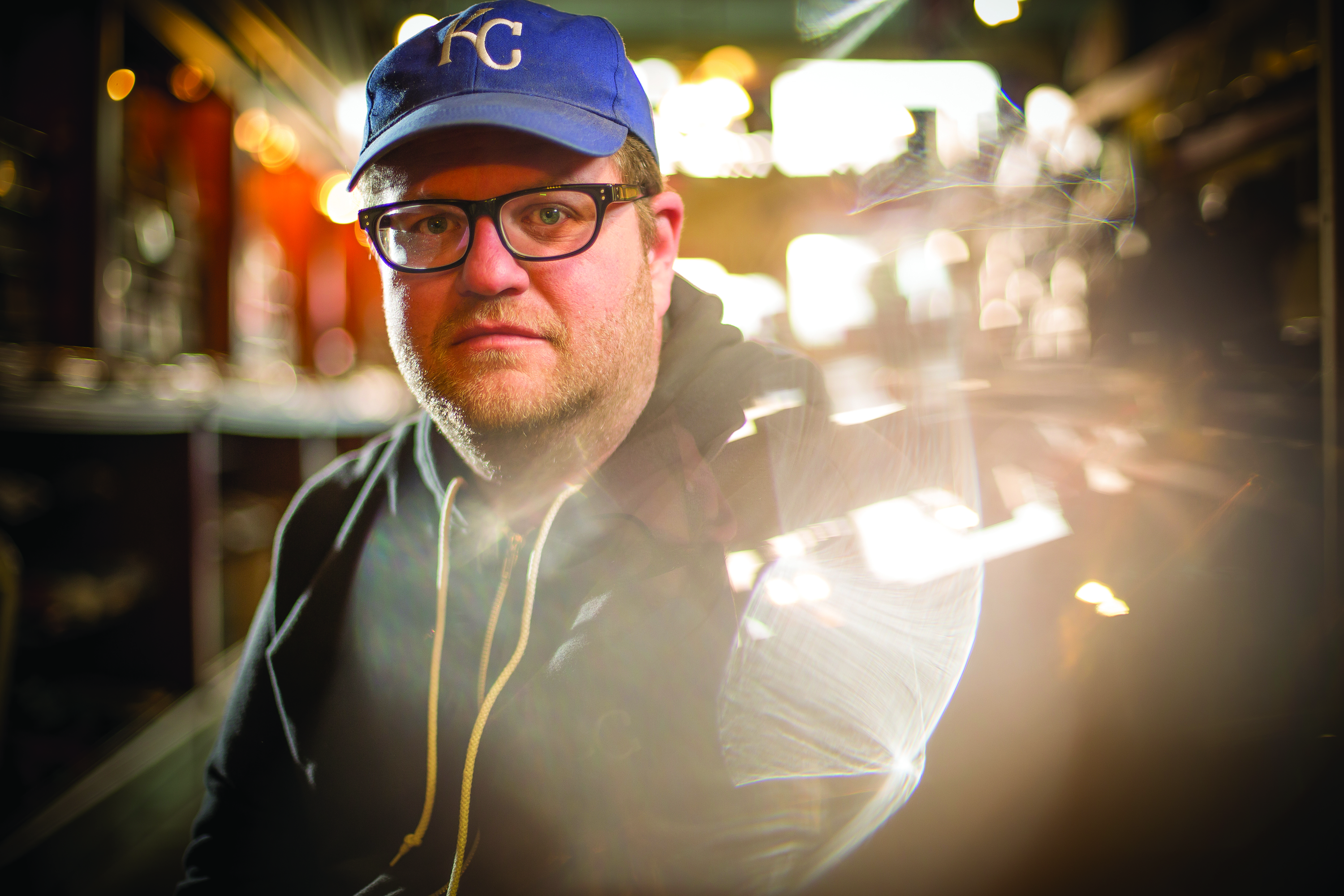From Hampton to Hollywood: A chat with writer/producer/director Harry Thomason

INTERVIEW / KODY FORD
The town of Hampton, Arkansas, is 1,721 miles to the Los Angeles city limits. If you drive, you can make it in 25 hours. A direct flight from the Bill and Hillary Clinton National Airport in Little Rock to LAX in Los Angeles takes a little under six hours. But to truly leave your mark on Hollywood – that’s not as easy.
But Hampton native Harry Thomason did just that.
Harry and his wife Linda Bloodsworth-Thomason created Mozark Productions in 1983. The company is best known for the classic sitcom Designing Women, which drew high ratings for CBS in the late 80s. Their other hits include Evening Shade and Hearts Afire, which starred John Ritter and Markie Post. (Fellow Arkansan Billy Bob Thornton co-starred in the latter two shows.) During the 1992 Presidential campaign, Harry produced The Man from Hope, a biographical film on then Gov. Clinton, that played prominently during the Democratic National Convention. Throughout the Clinton administration, Harry supported his friend (and President) in a variety of ways. Later, he directed a documentary called The Hunting of the President that focused on the political attempts to bring down the Clintons.
Having a storied career by the dawn of the 21st century, Harry has not stopped. In 2011, he directed The Last Ride about the final days of Hank Williams, Sr., and is currently at work on new projects. The Idle Class caught up with Harry to talk about growing up in Arkansas, why he left coaching football for Hollywood and the working relationship between he and his wife.
IDLE CLASS: At what point did you know you wanted to pursue a creative line of work?
When I was twelve, my mother helped me build my own darkroom in a closet and I started processing photos shot with a camera my uncle had brought back from Germany – he was there for D-Day, the Battle of the Bulge, the move into Germany and somewhere along the way he picked up a camera that he let me have long after the war.
Who were some of your early creative influences?
As far as creative arts, it would have to be my mother who was a painter later in her life but when younger she was a good craftsperson and she understood how to free me of any restraints of how things should be done – she certainly allowed my imagination to know no bounds. Whatever I wanted to try, she would not say no, but would guide to let me figure it out for myself and most times I would see it would not work. Not just in creative areas, at ten years old, I decided it would be great to raise sheep, then shear them and sell the wool. She got me articles on how it was done and we even visited some person in the countryside that had a couple of sheep and he told me how early he had to get up to take care of the sheep and how hard the shearing and care was. I quickly decided I didn’t want to have a sheep herd!
Of course my mother already knew what my conclusion would be.
Another influence was the kid that lived next door to me, Charles B. Pierce (The Legend of Boggy Creek, The Town That Dreaded Sundown and many others). He was a couple of years older than me and is the first kid I remember from my life. Charlie was first of all, a great artist and could easily have had a career as an oil painter. What he was great at as a kid and what served him well in the film business was that he was a great storyteller. I remember sitting around campfires with other neighborhood kids listening to him spin mesmerizing stories. They captured and fired my imagination (after all these years, I can still tell you a few of the stories he told.)
How did growing up in Hampton & south Arkansas influence your view of the world and what you wanted out of it?
I went to the Hampton school at a time (I hope it is still that way) when every teacher did her job and if you came out of that high school, you were prepared. Few of us ever doubted we would do what we wanted to do. Unfortunately, in my class I consider myself to be the lowest achiever! I look at the people in my very small class, even for Hampton, of 20 people or so and I see a group of overachievers – builders of transportation firms, lawyers, doctors, surgeons, founders of large bank chains, engineers, teachers and accountants.
And it just wasn’t my class – when I first arrived at Columbia Pictures, the studio had a meeting of all the producers and explained a problem they were having with the legendary Jack Valenti and the MPAA that was serious. They asked if anyone thought they might know anybody in NY or DC that could help, and after a moment of silence, I raised my hand and said I thought I might. The studio executive looked at me like he thought I was in way over my head (but I probably imagined that). I asked him to give me a couple of hours and went to my office and called the MPAA’s chief legal counsel and explained how the studio felt and what could be done to fix it.
The legal counsel replied, “Have you been home lately?” I said no but I was going for a reunion the next month. Then Attorney Victor Nutt from Hampton High, chief legal counsel of the MPAA said, “I need to get home soon, myself. Listen, I will fix this and call you back tonight.” He fixed it.
They asked me to produce The Blue and the Grey and had already sent scouts all over the nation with no luck, the head of production asked where I would you shoot it. I said, ‘I know you will think I am crazy but the only place that can offer everything we need is Arkansas. ‘ He said, “I thought you were crazy on the MPAA matter, you weren’t, fly home tonight, scout, take pictures.” I did and we shot it around Fayetteville and the president of production at Columbia loved Arkansas for the rest of his life. He would see me in the hallway and ask when we were going to find another picture to shoot in Arkansas.
You were a speech teacher in Little Rock at one point. How did you go from that into show business?
I taught art, drama and was a football coach at Little Rock McClellan and…it was one of the best times of my life. The faculty was made of people I still consider friends. I decided I wanted to get in the television business and in the spring I read in the paper about an ad agency that had just been hired to represent a guy running for governor.
On a whim, I went to see the head of the agency, Jim Brandon, on a late Thursday afternoon and told him I should do the campaign spots for the candidate. I had drawn some storyboards on how I would do the spots. He studied them said they were pretty good and then asked, “Why would I be crazy enough to hire a football coach to make these commercials?” I had talked to my Uncle J.L. beforehand and he had agreed to back me so I said, “Because when I am through, if you don’t like them you don’t have to pay me.” I don’t believe I told my Uncle J.L. I was going to say that.
There was a long silence and finally Jim Brandon said, “This is crazy, and I am going to regret it, but I will give you a shot. You get the candidate for three hours on Saturday morning so we will have time to redo them when you foul it up.” I said okay and left downtown Little Rock sort of in shock. I had the gig, but in two days I had to film them, and of course didn’t own a camera or have the slightest idea what to do.
By late Thursday night, the McClellan coaching staff was at my house and we were planning how to do it. By midnight we were downtown at the now-gone but then-famous Ray-Chris Film Lab, which furnished cameras and processed game film for every high school and college team within hundreds of miles.
They repeatedly showed us how to load the film into the Bolex 16mm camera they were loaning us. By 1 am we managed to learn how to load (the hardest part) and the basics of how to use the camera.
The next day, we recruited a few of our athletes to help us and Friday afternoon went to a farm near Bryant we had chosen and practiced what we would say and how we would shoot the spot. That night, I went to K-Mart and bought dark green polished cotton t-shirts and blue baseball hats to dress the crew in. I must say that at six o’clock the next morning on location, I perused the best-dressed film crew I have still ever had!
Now the anxiety set in, because we all knew that the minute the candidate for governor got there, he would look at us and say, “Are you insane, this is not a film crew – it’s a coaching staff!” Didn’t happen, he arrived we had everything set and planned and we wrapped ahead of schedule.
He thanked us, talked about how professional we were (I caught a glimpse of Jim Brandon rolling his eyes as the candidate was telling us how great we were), got in his car and drove away.
We rushed back to Ray Chris to process the film and were amazed to see an image! We edited the film and sent a rough cut to the Brandon Agency and within hours got a call that they wanted us to do the rest of the candidate’s spots. So now I was in the film business. I never do anything that I don’t think about that first great film crew I ever had.
You and your wife been credited by some as helping shift the image of Southerners away from Beverly Hillbilly-types to more witty, sophisticated characters. When you first got to L.A. was this one of your goals to stories with Southern characters that you laughed with, rather than at?
Linda and I have always been cheerleaders for the South in particular and Middle America. We know there are bad things in some parts of the South and Midwest that we don’t want to represent but we have never gotten why all television shows and most movies are designed for only people who live on the coasts. Most people live in the middle but are rarely depicted on the screen as intelligent – almost always they are characters that are being made fun of. When you think about it, even Andy Griffith was very popular, but most of the people in the show were a little short, IQ wise. I have always believed you could find people of low IQ and bad living examples in New York and L.A. and wonder what kind of ignorance and prejudices always drives (especially cable networks) executives to pick people in our region that really do not contribute to making our areas look as good as the rest of the nation.
Was it difficult to get Designing Women off the ground?
We were in our offices at Columbia (later to become Sony) and Linda was discussing the show about smart women in the South (no name yet) she wanted to pitch to CBS. Some Columbia executives were very reluctant for her to pitch it – probably because it was about smart women from the South!
As fate would have it, during the meeting the phone rang and it was one of the top executives at CBS, (Mike Ogiens) and he asked Linda when she was going to pitch something, and as some of the Columbia guys gasped and mouthed “No, no”, she said she had an idea for a show about smart Southern women. He said “when can you come over to talk about it?” and she replied that she could come over right then.
We all got in our cars (yes, the Columbia execs who said “don’t do it,” got in their cars and went also. We all met in a conference room at CBS and hour later and CBS’, Vice President, Mike Ogiens had Linda tell him briefly about the women. He then called the President of CBS, Harvey Sheppard and asked if he would come across the hall to the meeting. He walked in and stood in the door and Mike said, “Linda, tell him what you want to do.” Linda briefly told the story again. There was a beat, and Harvey Sheppard looked at Linda and said, “We will do that show. You have a deal.” He then turned and walked out. He then stepped back in and asked Linda what these women did. Linda had not thought about it a lot and off the top of her head she said, “I don’t know, maybe they are designers or decorators.” He said “Great,” and walked out.
The Columbia executives that opposed the idea rushed to the office phone to tell their bosses they had just sold a wonderful show about Southern women. They were right.
What have been some of your greatest challenges, either creatively or career-wise, and how did you overcome them?
If you are in the film business, every shoot is a great challenge. As the great French director Truffaut said, “Making a movie is like a stagecoach journey into the far West. At the start you hope for a beautiful trip. But shortly you wonder if you will make it at all.” I think what works best is to keep moving through whatever carnage and wreckage there is to get the project finished because if you don’t finish it, you never have a chance.
I am in one of the larger challenges right now, we did a film here in Arkansas – The Last Ride. We had a distributor that took money from our bank account before the picture started and we had to go to Fox to get them to help out. Of course we are trying to prosecute the guy. As it turned out, he had stolen millions from a major studio (I don’t want to name them because of the ongoing FBI investigation) that had recommended him to us. It hurt us badly and I feel compelled to come up with a way to make sure our investors have a shot. Producers Doug Jackson, Benjy Gaither, Tim Jackson and I have a couple of things we want to try. We will do anything we can to make sure we are successful.
How do you feel about the state of television today versus the late ‘80s/early ‘90s?
Somewhere along the way, the writers lost control of the creative process out here and national network television became watered down with very few lows are highs and the basic IQ of a brick. That is not to say there are not some good shows on, because there are some exceptionally good shows you can view, but if you think about it, almost none of them are on the national free airwave networks that used to keep us around the water cooler talking and united us as a nation.
You have worked in television, film, both fictional narrative and documentary. What’s your favorite medium to work in?
I have no doubt that fictional film is the most gratifying of the group. You don’t have the constraints of television or documentaries. Freedom of interpretation is the most satisfying thing a medium can provide and fictional film certainly provides the most.
What sort of an influence has your wife played on you throughout the years and how is your working relationship?
I can truly say that I believe my wife is one of the smartest people I know and that she has an instinct that is almost infallible. I love and admire her and only wish I had listened to her more – I would be in a much better place. It is hard for her to work on television now because she refuses to compromise good writing in order to get on the air. Lucky for her, the people on Broadway tend to let writers write what they want, so she is knee-deep in two big Broadway musicals. She has been asked to do the shows by one of the smartest and most successful producers on Broadway – Elizabeth Williams, and guess what? – she is from Arkadelphia!
What’s next for you?
We have a couple of movies we are prepping and a little short series for YouTube presentation that we really like, but too early to say much about any of them yet. One is designed to try to help the people who have helped us. More later.
VISIT: MozarkProductions.us
Photo courtesy of Harry Thomason





Comments